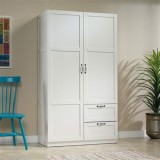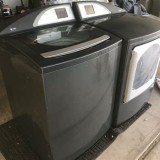Types of Alarms Used in Ships: Ensuring Safety and Efficiency at Sea
In the vast expanse of the oceans, ships navigate through unpredictable conditions, making safety and efficiency paramount. To ensure the well-being of crew members, cargo, and the environment, various types of alarms are employed aboard vessels. These alarms serve as crucial safety measures, providing early warnings of potential hazards and enabling prompt responses.
1. Fire Alarm Systems:
Fire poses a significant threat to ships, with the potential to cause extensive damage and endanger lives. Fire alarm systems are designed to detect smoke, heat, or flames at an early stage, allowing for immediate action to contain and extinguish the fire. These systems typically comprise smoke detectors, heat detectors, and manual call points strategically placed throughout the vessel.
2. Bilge Alarm Systems:
Bilges, the lowest compartments of a ship's hull, often accumulate water due to leaks, condensation, or heavy seas. Bilge alarm systems monitor the water level in the bilges and sound an alarm when it reaches a critical level. This early warning allows crew members to address the issue promptly, preventing potential flooding and ensuring the ship's stability.
3. Engine Room Alarm Systems:
The engine room, housing the ship's propulsion and power generation systems, is a critical area requiring constant monitoring. Engine room alarm systems keep watch over various parameters, including temperature, pressure, and vibration levels. If any of these parameters exceed predefined limits, an alarm is triggered, alerting the crew to potential problems in the engine room.
4. Navigation Alarm Systems:
Navigation alarm systems play a vital role in preventing collisions and maintaining a safe course. These systems monitor the ship's position, speed, and direction, and generate alarms in case of deviations from the intended route. Additionally, navigation alarm systems provide warnings about potential hazards, such as shoals, reefs, or other vessels in close proximity.
5. Security Alarm Systems:
Security alarm systems safeguard ships from unauthorized access and potential security breaches. These systems employ sensors, cameras, and motion detectors to monitor restricted areas and alert the crew in case of suspicious activity. Security alarms are particularly important for vessels carrying valuable cargo or operating in high-risk areas.
Conclusion:
The types of alarms used in ships serve as indispensable safety tools, enhancing the overall efficiency and security of marine operations. By providing early warnings of potential hazards, these alarms enable crew members to take swift action, minimizing risks and ensuring the well-being of all onboard. As technology continues to advance, the integration of innovative alarm systems will further contribute to the safety and efficiency of ships, making seafaring a more secure and reliable endeavor.

Faq What Are The Diffe Types Of Alarms On Ships Mfame Guru

Diffe Types Of Alarms Used On Ships Ship Navigation Lights Alarm

Diffe Types Of Alarms Used On Ships

Types Of Emergency Alarms Used In Onboard Ships

Top 5 Types Of Alarms On Ships

Types Of Emergency Alarms Used In Onboard Ships

What Are The Types Of Ship S Emergency Alarm Signals Seaman Memories

The Various Types Of Alarms On Ships Mr Marine

Diffe Types Of Alarms Used On Ships

Diffe Types Of Alarms Signal Used On Ship S02ep02 Introduction To Maritime Safety








